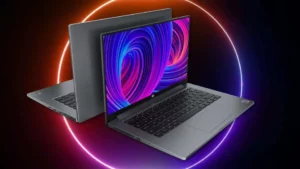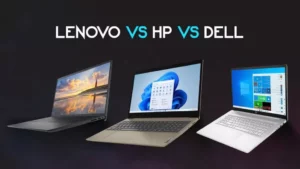Everybody now uses laptops as necessary electronic devices.
All of us, from working-class people to college students, require laptops for a number of reasons.
Despite the fact that everyone needs a computer, each of our demands is unique.
Some use them for scholarly purposes and documentation, while others only use them for work.
Buying and maintaining a laptop are just as important as owning one, making up the other half of the job.
Getting the purchase process properly is crucial.
The gadget itself and the amount of value we derive from it can be significantly and permanently impacted by a poor purchasing selection.
This brings up a very important question.
How Can I Purchase A Laptop?
A laptop can be purchased easily, but doing it correctly might be challenging.
Most usually, a potential laptop buyer will first consider their needs.
What am I looking for in a laptop?
Do I need a laptop for gaming or just to check email and perform other basic tasks?
What kind of laptop a consumer needs ultimately depends on the responses to these and numerous more questions.
But that’s not all; a purchaser must also choose between inexpensive and pricey models after choosing the type of laptop they require.
Choosing a Cheap or Expensive Laptop
The phrase “buying a cheap laptop” refers to looking into every option to reduce costs while maximizing value.
This is sometimes referred to as “purchasing on a budget,” which means searching for the greatest laptop within your price limit.
On the other hand, “purchasing an expensive laptop” indicates that you value performance and usefulness above everything else.
Customers that have this desire tend to be more concerned with how much and how long their laptops can last without breaking down.
Both purchase alternatives are legitimate; it only relies on the preferences of the customer.
Should You Purchase a Cheap or Expensive Laptop?
You might find it interesting to hear that, as has been the case for many years, the typical consumer only wants to spend $300 to $400 on a laptop.
These figures demonstrate that buyers are known to try to acquire laptops for as little money as possible, even though they are not frightening.
This decision might be wise, especially in terms of the budget.
From the perspectives of long-term durability and service, however, it very well could be the wrong option.
Hardware
The specifications, sometimes referred to as “specs,” and the included internal and external accessories make up your laptop’s hardware.
The processor, hard disk, RAM, and graphics chip are among the specifications.
The screen, keyboard, battery, chassis (metal or plastic), ports, and other components can be considered accessories.
Software
When purchasing a laptop, you have two main software options: Windows laptops from Microsoft and MacBooks from Apple.
Google’s Chrome OS may also be of interest to consumers.
Thus, a laptop’s price is determined by its specifications.
However, there is a chance that an expensive laptop may come with top-notch hardware and software setups.
The same, however, scarcely applies to low-cost computers.
Let’s quickly examine the factors that go into a laptop’s price so that this discussion is more clearly understood.
The kind of hardware and software a computer offers will determine its pricing on the market today.
Do Expensive Laptops Pay Off?
This is possibly the most important query that this piece has attempted to address.
The fact is, if you have the money, costly laptops are typically worthwhile.
The answer is straightforward: Expensive computers do not compromise.
With an inexpensive laptop, you can only save money because the makers made concessions.
That differs in each instance, but in the end, the computer is lacking something to save money.
It can have fewer RAM or storage capacity, a keypad and touchpad that isn’t as reliable and responsive, or a short battery life.
On the other hand, expensive computers hardly ever make these kinds of concessions.
Every dollar you spend on your pricey laptop is well worth it.
Typically, the RAM and storage capacity are the best available.
It comes with a quick processor, great attachments, a long battery life, and—most importantly—a robust design all around.
How Come You’re Paying More?
You might wonder, “What do I get for my money when I buy an expensive laptop?”
Don’t worry; we have the solutions.
Here is where the extra cash goes when you spend a few hundred dollars on a reasonably expensive notebook.
extra RAM
RAM on your laptop is more crucial than you would realize.
Only 8GB of RAM is what the majority of cheap laptops on the market provide, which seems impressive on paper but is ineffective in practice.
A laptop with 8GB of RAM can only handle the very minimum, such as simple document processing, online browsing, and standard media streaming.
It will struggle if you put it in a more demanding situation.
On the other hand, a pricey laptop comes with at least 16GB of RAM.
Better multitasking and productivity are made possible by more RAM.
You can perform thorough documentation, multi-tab surfing, thorough music and video streaming, edit images, and occasionally play your favorite video games on your computer.
Expanded Storage
You keep your files, including your laptop OS, on your laptop storage.
Most affordable laptops include a low-quality HDD (Hard Disk Drive).
HDDs are not only sluggish and annoying, but they also seldom last over time.
Rarely does an expensive laptop come with an HDD.
The HDD is there to give you additional storage capacity even when it does.
Most pricey laptops don’t have hard drives; instead, they have solid-state drives (SSD).
The former offers you a better user experience overall because it is considerably faster, more responsive, and more robust.
A SSD significantly improves the performance of any high-end computer
You can achieve a 5x or 6x increase in performance speed and efficiency, resulting in seamless task switching and general responsiveness.
Greater Durability
Steel or metal, rather than plastic, is used in the manufacturing of the most robust laptops.
Cheap laptop manufacturers utilize plastic over metal to reduce expenses.
Even if technique works, you will be sacrificing some of the steel and metal’s durability.
The steel or metal case seen on more expensive laptops provides comparatively superior protection and durability.
Oh, and metal casings look and feel more luxurious!
Improved and larger battery
It’s likely that you won’t be obtaining the finest battery if you purchase your laptop for less money.
You might only be able to use the system for two or three hours.
After a few months of use, your battery might also need to be changed.
On the other hand, more expensive laptops like the ThinkPad from Lenovo and the Latitudes from Dell are renowned for their long-lasting batteries.
A single charge will give you up to six hours of battery life.
The battery also has a significantly longer lifespan.
Outstanding touchpad and keyboard
The majority of budget laptops on the market have, at best, poor keyboards.
Such keyboards are weak and uncomfortable to operate.
You will not have a pleasant typing experience.
With the touchpad or mouse, the accuracy is the same.
On the other hand, expensive laptops come with excellent keyboards and touchpads.
The touchpads are quite intuitive to operate and responsive.
The snappier keys and extensive travel on the keyboards also give you a better typing experience.
Better Performance Overall
Expensive computers are capable of more than just the basics.
Depending on your selections, you may receive either a workstation-class performance or a gaming performance.
In either case, the performance of an expensive laptop is typically dependent on the aforementioned elements.
The conclusion
When looking for a new laptop, it can be tempting to choose the cheapest choice.
Naturally, we endeavor to reduce expenses and save money.
Cost-cutting, however, is frequently the wrong choice.
Experience over the years has demonstrated that investing a few hundred dollars more in your laptop may be a wise financial move, particularly over the long term.
The best software and technology are available on an expensive laptop, resulting in excellent performance all around.
Considering that you spend less on maintenance and improvements, it is also a wise investment.
Sometimes the expense of repairing an inexpensive laptop equals its original cost.
Even if fixing a more expensive laptop can be pricey, the total cost of ownership is still lower.
Do you require expert advice on selecting the best laptop?
Please get in touch with us right away to discuss your needs.
We are more than delighted to assist you in selecting a computer that will meet your needs both now and in the future.





Recent Comments